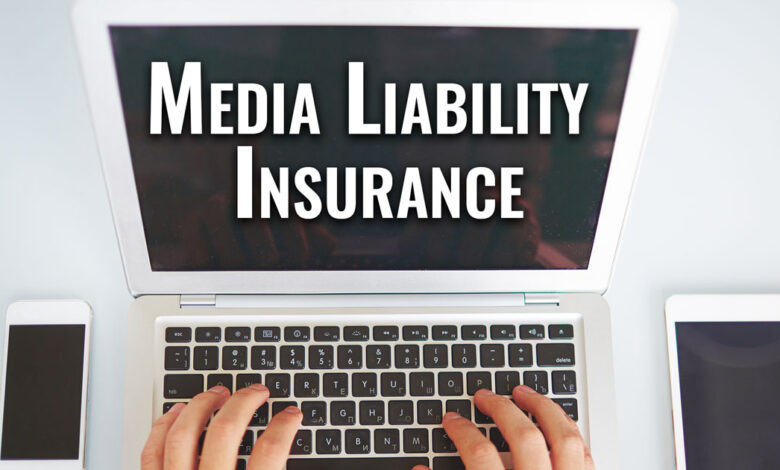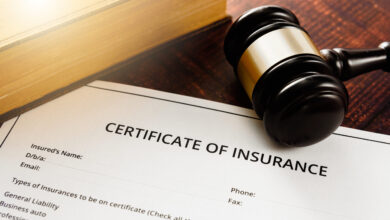Media Liability Insurance

Searching for ways to safeguard your media business from potential legal pitfalls? Media Liability Insurance could be the solution you need. In today’s fast-paced digital world, media companies face a myriad of risks, from copyright infringement to defamation claims. This comprehensive guide will walk you through the essentials of Media Liability Insurance, its importance, and how it can protect your business.
What is Media Liability Insurance?
Media Liability Insurance, also known as Media Perils Insurance, is a specialized type of coverage designed to protect media companies and professionals against legal claims arising from their content. This insurance covers a wide range of risks, including defamation, invasion of privacy, copyright infringement, and more. It is essential for businesses involved in publishing, broadcasting, advertising, and digital media.
Key Components of Media Liability Insurance
- Defamation: Protects against claims of libel (written defamation) and slander (spoken defamation).
- Invasion of Privacy: Covers claims related to the unauthorized use of someone’s likeness or personal information.
- Copyright Infringement: Protects against the unauthorized use of copyrighted material.
- Plagiarism: Covers claims of using someone else’s work without proper attribution.
- Errors and Omissions: Protects against claims of negligence or mistakes in the content produced.
Why is Media Liability Insurance Important?
In the media industry, the risk of facing legal claims is high. With the rise of digital platforms, content is more accessible and shareable than ever before, increasing the likelihood of disputes. Here are some reasons why Media Liability Insurance is crucial:
Protection Against Costly Legal Battles
Legal disputes can be expensive and time-consuming. Media Liability Insurance helps cover the costs of legal defense, settlements, and judgments, allowing your business to focus on its core activities without the financial strain of a lawsuit.
Safeguarding Your Reputation
A legal claim can damage your company’s reputation, affecting your relationship with clients and audiences. Media Liability Insurance provides the financial support needed to address claims swiftly and professionally, helping to maintain your business’s credibility.
Compliance with Client Requirements
Many clients, especially in the advertising and publishing sectors, require media companies to have Media Liability Insurance as a condition of their contracts. Having this coverage can make your business more attractive to potential clients and partners.
Who Needs Media Liability Insurance?
Media Liability Insurance is essential for a wide range of professionals and businesses in the media industry. Here are some examples:
Publishers and Authors
Publishers and authors face risks related to the content they produce, including defamation, copyright infringement, and plagiarism. Media Liability Insurance provides the necessary protection to address these risks.
Broadcasters
Television and radio broadcasters can face claims related to the content they air, including defamation and invasion of privacy. Media Liability Insurance helps mitigate these risks.
Advertising Agencies
Advertising agencies create and distribute content on behalf of their clients. They can face legal claims related to copyright infringement, false advertising, and more. Media Liability Insurance provides the coverage needed to protect against these claims.
Digital Media Companies
Digital media companies, including bloggers, vloggers, and social media influencers, are increasingly at risk of facing legal claims. Media Liability Insurance helps protect against claims related to the content they produce and share online.
What Does Media Liability Insurance Cover?
Media Liability Insurance covers a wide range of risks associated with the creation and distribution of content. Here are some of the key areas of coverage:
Defamation
Defamation claims can arise from statements made in written or spoken form that harm someone’s reputation. Media Liability Insurance covers the costs of defending against these claims and any resulting settlements or judgments.
Invasion of Privacy
Invasion of privacy claims can arise from the unauthorized use of someone’s likeness, personal information, or private activities. Media Liability Insurance provides coverage for these claims, helping to protect your business from legal and financial repercussions.
Copyright Infringement
Copyright infringement claims can arise from the unauthorized use of copyrighted material, such as text, images, music, or videos. Media Liability Insurance covers the costs of defending against these claims and any resulting settlements or judgments.
Plagiarism
Plagiarism claims can arise from using someone else’s work without proper attribution. Media Liability Insurance provides coverage for these claims, helping to protect your business from legal and financial repercussions.
Errors and Omissions
Errors and omissions claims can arise from mistakes or negligence in the content produced. Media Liability Insurance covers the costs of defending against these claims and any resulting settlements or judgments.
How to Choose the Right Media Liability Insurance
Choosing the right Media Liability Insurance policy is crucial for ensuring your business is adequately protected. Here are some factors to consider when selecting a policy:
Assess Your Risks
Evaluate the specific risks your business faces based on the type of content you produce and distribute. This will help you determine the coverage you need.
Compare Policies
Compare policies from different insurance providers to find the one that best meets your needs. Look for policies that offer comprehensive coverage and competitive premiums.
Review Policy Exclusions
Carefully review the policy exclusions to understand what is not covered. This will help you identify any gaps in coverage and determine if additional policies are needed.
Consult with an Insurance Broker
An insurance broker can help you navigate the complexities of Media Liability Insurance and find the policy that best meets your needs. They can provide valuable insights and recommendations based on their expertise.
Real-World Examples of Media Liability Claims
Understanding real-world examples of media liability claims can help illustrate the importance of having the right coverage. Here are a few notable cases:
Defamation Case: Gawker Media
In 2016, Gawker Media faced a high-profile defamation lawsuit filed by former professional wrestler Hulk Hogan. Hogan claimed that Gawker had invaded his privacy by publishing a sex tape without his consent. The jury awarded Hogan $140 million in damages, leading to Gawker’s bankruptcy. This case highlights the significant financial risks media companies can face without adequate insurance coverage.
Copyright Infringement Case: Google Books
In 2005, a group of authors and publishers filed a copyright infringement lawsuit against Google over its Google Books project, which involved scanning and digitizing books without permission. The case was settled in 2015, with Google agreeing to pay $125 million to resolve the claims. This case underscores the importance of having coverage for copyright infringement claims.
Invasion of Privacy Case: Facebook
In 2019, Facebook faced a class-action lawsuit over its use of facial recognition technology without users’ consent. The company agreed to pay $550 million to settle the claims. This case highlights the potential risks associated with invasion of privacy claims and the importance of having the right insurance coverage.
Tips for Managing Media Liability Risks
While Media Liability Insurance provides essential protection, it’s also important to take proactive steps to manage and mitigate risks. Here are some tips for managing media liability risks:
Implement Clear Content Guidelines
Establish clear guidelines for creating and distributing content. This includes guidelines for fact-checking, sourcing, and obtaining permissions for copyrighted material.
Train Your Team
Provide training for your team on media liability risks and best practices for avoiding legal claims. This can help reduce the likelihood of errors and omissions.
Conduct Regular Audits
Conduct regular audits of your content to ensure compliance with legal and ethical standards. This can help identify and address potential risks before they become legal issues.
Consult with Legal Experts
Consult with legal experts to review your content and provide guidance on potential risks. This can help ensure your content is legally sound and reduce the likelihood of claims.
Final Words
In the ever-evolving media landscape, Media Liability Insurance is a crucial safeguard for businesses and professionals. It provides essential protection against a wide range of legal claims, including defamation, invasion of privacy, copyright infringement, and more. By understanding the importance of Media Liability Insurance and taking proactive steps to manage risks, you can protect your business and ensure its continued success in the digital age.
Whether you’re a publisher, broadcaster, advertising agency, or digital media company, having the right Media Liability Insurance coverage is essential. Assess your risks, compare policies, and consult with an insurance broker to find the policy that best meets your needs. With the right coverage in place, you can focus on creating and distributing content with confidence, knowing that your business is protected against potential legal pitfalls.



